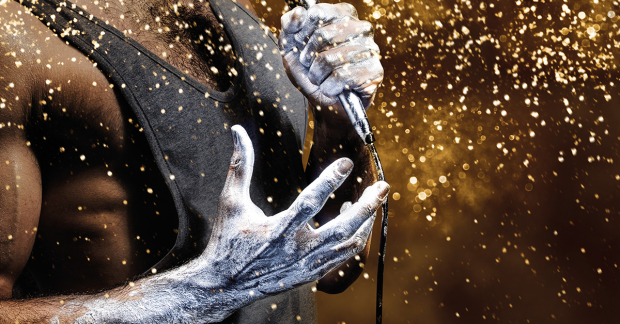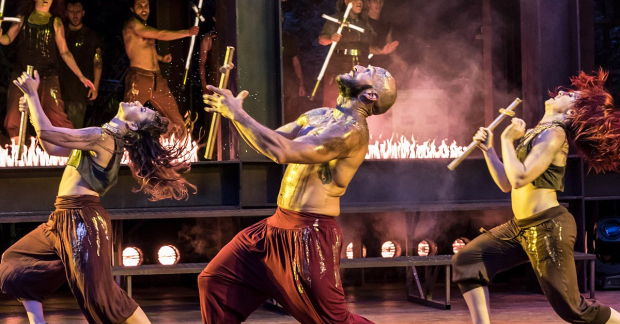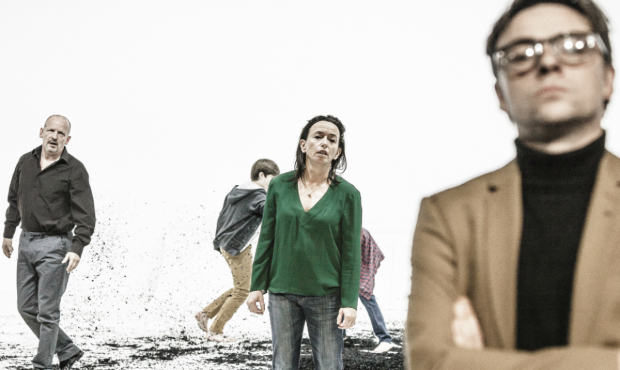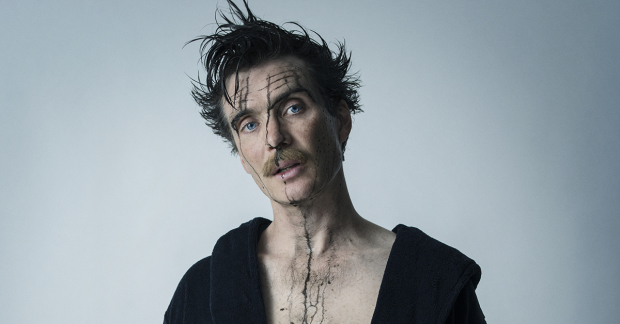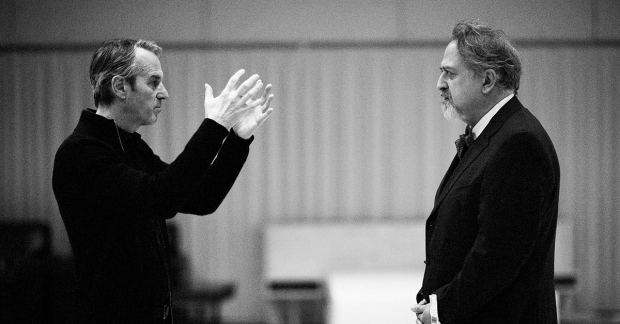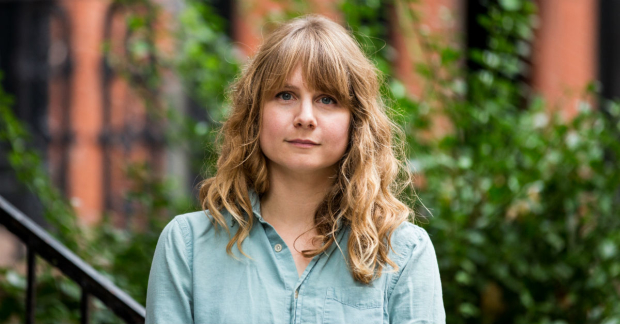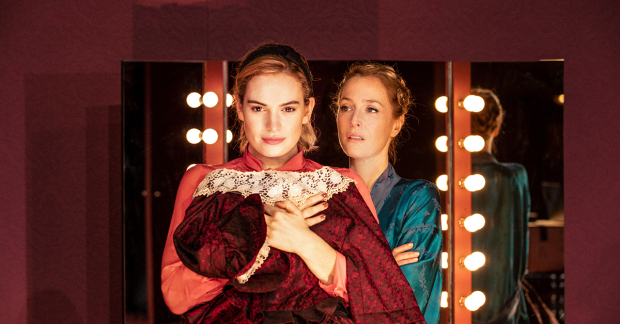Review: Medea (Barbican Theatre)
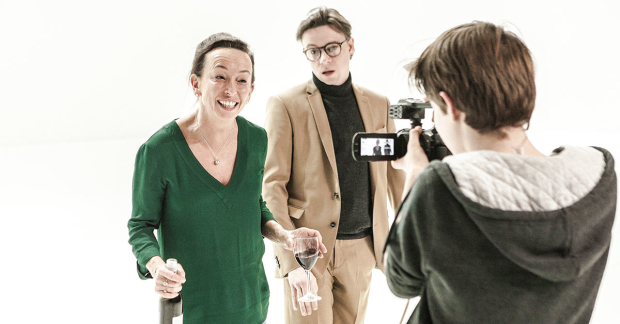
© Sanne Peper
There are no monsters in writer/director Simon Stone's contemporary retelling of the Medea story for Internationaal Theater Amsterdam (formerly Toneelgroep Amsterdam). Marieke Heebink's Anna, whose story Stone based on an American woman imprisoned for the murder of two of her three children, may be driven by revenge and injured pride but it's somehow impossible to condemn her desperate actions outright.
Stone keeps the focus tightly on Anna not just dramaturgically, but also literally by means of live video footage projected onto a massive screen above the playing space. Emotions flicker across Heebink's face but even so, she is inscrutable, a woman operating according to her own internal logic in response to a set of circumstances outside of her control.
As Anna's husband Lucas, Aus Greidanus Jr embodies the Jason character with a comparable complexity. Stone's Medea turns out to be as much about gender politics as it is a psychological study of a woman who kills her kids, with Lucas offering a nuanced portrait of what happens when patriarchal power structures are left unchallenged.
Stone's script and staging are as economical as each other, one conversation morphing into the next with no concern for scene setting. It's not always easy to keep up with such an approach, particularly for an audience reliant on the show's English surtitles, but what this Medea loses in clarity it gains in paciness. Its 80-minute running time positively dashes past, and you can't often say that about Greek tragedy.
Bob Cousins' design – an empty white box that nods to both the institution Anna is being discharged from at the start of the play and the pharmaceutical lab where she and Lucas met and worked together – offers nowhere for these characters to hide. It also functions highly effectively as a blank canvas for the striking – and sometimes disturbingly beautiful – way in which Stone presents a handful of the play's more violent moments.
You don't go into a production of Medea under any allusion about how the play will end but Stone and his cast are brilliant at keeping you guessing how exactly they're going to get you there. They are even a few laughs along the way, as Anna reconnects with her teenaged sons Gijs and Edgar (played with great maturity by young Poema Kitseroo and Faas Jonkers) after their enforced estrangement, and the family appears to teeter on the brink of normality.
It's all an illusion of course and the ending, when it comes, just knocks the wind out of your sails, a flawless melding of image and words.




